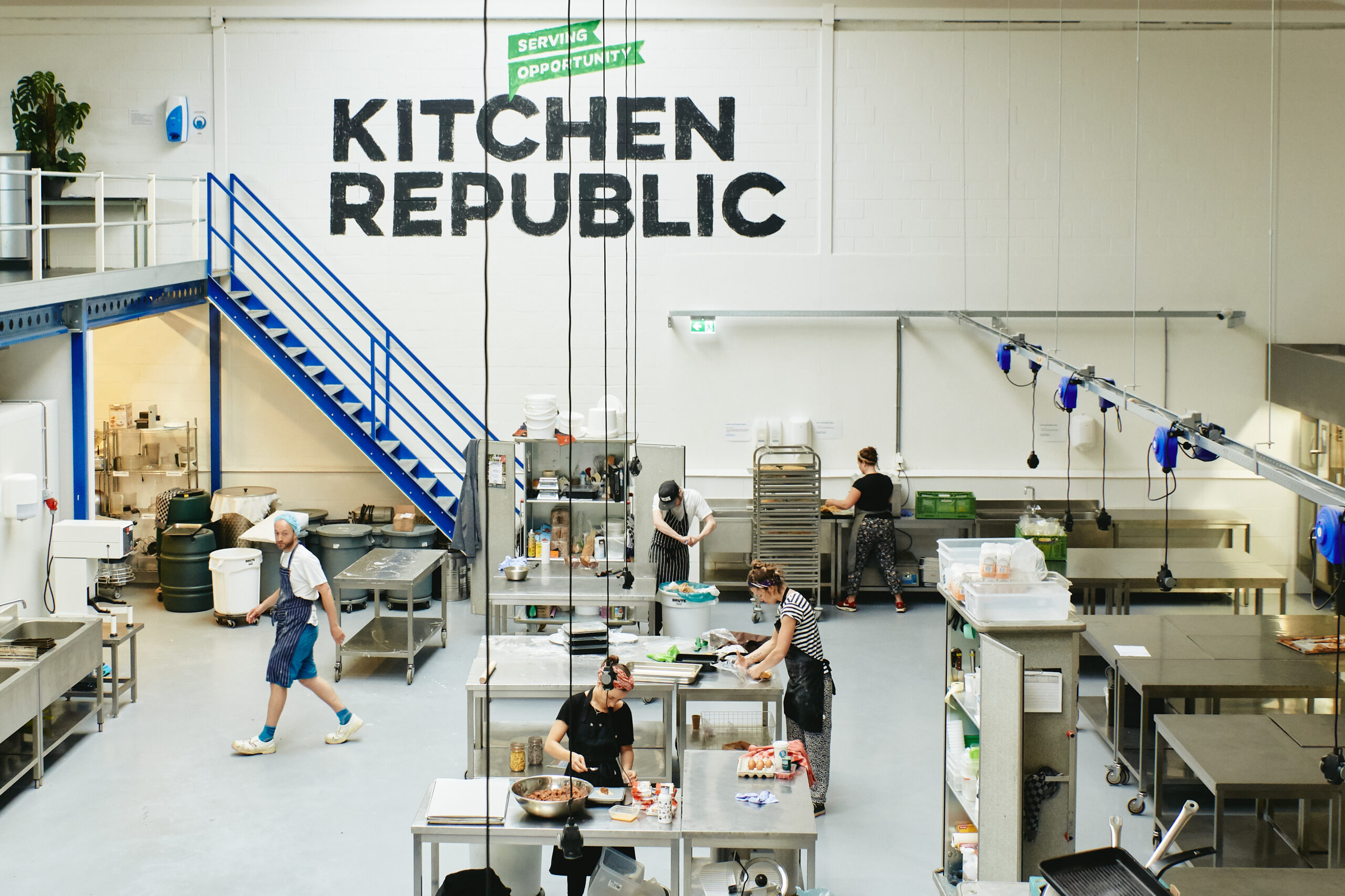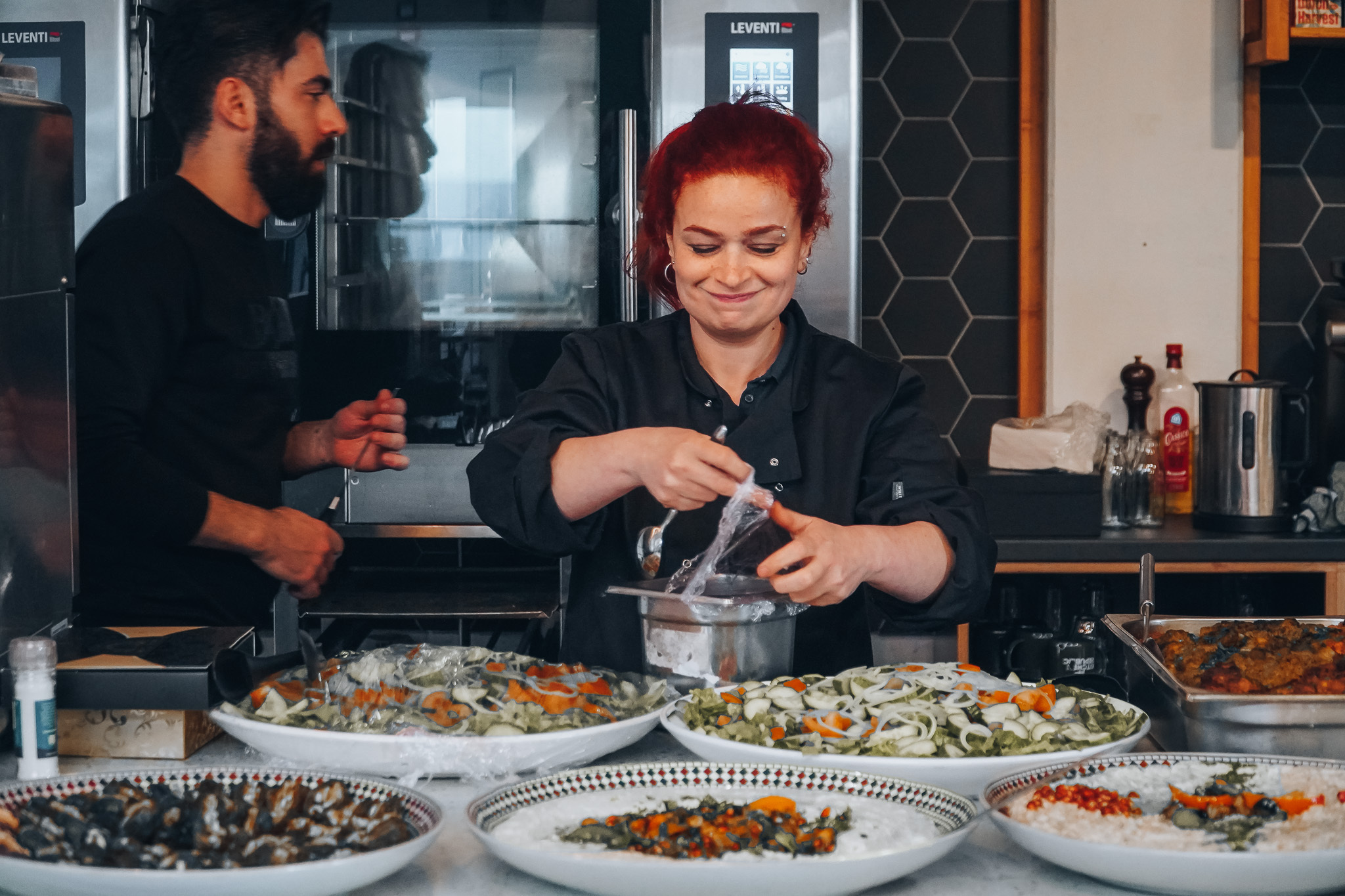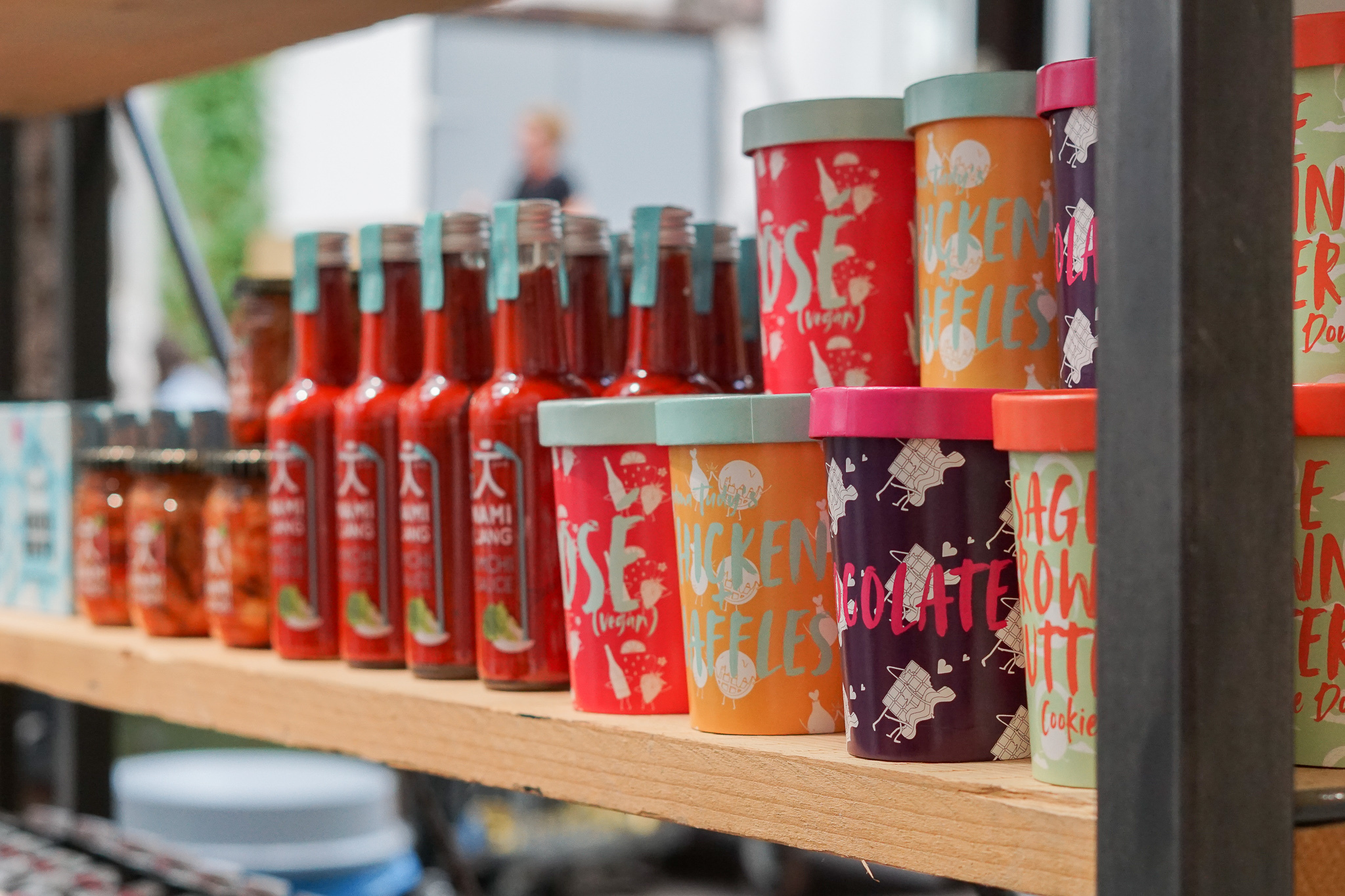It doesn't matter if you start with sausage and end with ice cream

The Food Business Toolkit helps you start a start-up well prepared
Kitchen Republic and Food Hub have been around for about the same amount of time: Kitchen Republic was founded in 2015, Food Hub a year later. Both companies were founded by a duo strongly affiliated with the Slow Food Youth Network (SFYN). Yet they are two very different companies: KR is (primarily) a production kitchen for start-up food entrepreneurs; FH is a training institute for people and organizations all along the food chain. What does Food Hub not do that Kitchen Republic does - and vice versa?
Joszi: "Kitchen Republic, Bart-Jan's company, is first and foremost a physical place: a kitchen where entrepreneurs come together and work. We don't have that physical space, we bring people together by building movements. In addition to those kitchens, Kitchen Republic also offers a lot of practical entrepreneurial experience and exchange between starting entrepreneurs. Just so to speak: at Food Hub we want to explain to you why sustainable packaging is important; Kitchen Republic explains to you what that packaging should look like. They just do it."
"At Food Hub, we want to explain to you why sustainable packaging is important; Kitchen Republic explains to you what that packaging should look like."

Bart-Jan: "At Kitchen Republic, we make sure in the most concrete way that food entrepreneurs still exist next year. And that way is: making sure they make money. We did once try to get the Kitchen Republic Academy off the ground, a teaching program for food start-ups. We did three rounds, but found that we didn't actually get any fun out of it. Then we decided we didn't want to be an educator. We are not there to explain theory, we want to help entrepreneurs very practically. And we saw around us that there were already programs we couldn't match: from Food Hub, for example. We weren't going to compete with that, were we? It made much more sense for us to work together."
Joszi: "We are not competitors. We do substantially different things. And if you add up what we're both good at, you get..."
The Food Business Toolkit! How exactly did the collaboration come about?
Joszi: "We had been working on online education for some time. When we got the opportunity to start developing a program for food entrepreneurs throughout the Netherlands, we immediately thought of Kitchen Republic. At Food Hub, we often talk about big themes like 'the food transition' and personal leadership - but we also knew that precisely that practical layer would really add value. That we could develop a program with the recommendation: hundreds of entrepreneurs have already gone before you!"
Who is the toolkit primarily for? And what can you do with it as an entrepreneur?
Bart-Jan: "The toolkit is really aimed at starting entrepreneurs in the food world: for those just starting out, or even considering it. All the basics are in there, it's like a checklist to see if you've thought of everything."
Joszi: "I call it a basic cookbook: you must have it in your kitchen and you pick it up regularly, but you're not going to go through it completely from cover to cover in one evening."
Bart-Jan: "It also contains many examples of entrepreneurs from our network. For example of a successful social media launch. You can just check out the art."
Joszi: "I think that may be the most valuable lesson we want to teach food entrepreneurs. Don't. Anything. Self. Want. Do! Use what is already there, the people you know. Dare to ask! Here's an example: you're a start-up with vegan snacks, and at some point you need to start regulating certification. Then you call a lawyer to ask what all you need to think about. But of course, many start-ups before you have made that phone call. Well, we've put the outcome of that phone call in the Toolkit for you. So it's completely full of things that every entrepreneur is going to need at some point."
"I think that may be the most valuable lesson we want to teach food entrepreneurs. Don't. Anything. Self. Want. Do!
Bart-Jan: "It also contains very handy templates: how do I calculate the cost price of my product? What must my packaging meet? And if you can't work with such a template, who should you turn to?"

You are entrepreneurs yourselves, of course, and you know countless of them. Is there some kind of success factor? Something that you can tell immediately: this start-up is going to make it, and this one probably isn't?
Bart-Jan: "Honestly, with this toolkit I also hope to show startups that it is quite complicated. We come across so many entrepreneurs who have an overly romantic view of starting a business. The toolkit gives you an idea of how insane a lot of details you will encounter. That's something a lot of entrepreneurs underestimate."
Joszi: "To me, the mindset of the entrepreneur is the most important success factor. It doesn't matter if you start with sausage and end up with ice cream; that means you are adaptive. Do you quickly get a success formula? Great, but then something happens in the world that makes your story or your cost price wrong. Are you then able to move with it, and sometimes even see that you have to quit? You can see that mindset in entrepreneurs at the very beginning, I think. If you already know exactly why your product is going to be the one, alarm bells go off for me..."
It doesn't matter if you start with sausage and end up with ice cream; that means you are adaptive.
Bart-Jan: "Haha, I would almost say the opposite. Yes, you have to be flexible enough to do things differently if necessary. But what I see most going wrong with entrepreneurs is very practical: that they don't even have an annual plan. They don't really work toward anything. It's not good if you can't measure whether your year has been successful. If you don't know whether your revenue should be 200k or 500k, how can you know what to do?"
Joszi: "Another thing I love about this collaboration: Bart-Jan always gives a completely different answer than I do. We really see things differently because we are very different entrepreneurs ourselves."
Bart-Jan: "Overall, I do see that the answer is persistence. Making a plan and being adaptive enough to adjust it again are both part of it. The toolkit hopefully takes away a lot of naiveté from start-up entrepreneurs."
Joszi: "Actually, that Toolkit is completely full of pitfalls and failures, haha."
Bart-Jan: "Everything Unilever doesn't want you to know. Can't we title that!"